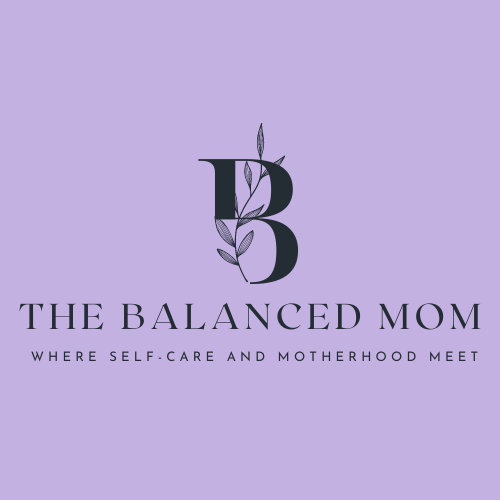A raw, honest look at how parenthood nearly broke us—and why I’m grateful we held on

I need to tell you something nobody prepared me for: having a baby almost ended my marriage.
There, I said it. The thing that feels taboo to admit out loud, the reality that gets glossed over in all those glowing pregnancy announcements and newborn photo shoots. The first two years after our son was born were the hardest of our relationship, and there were moments dark, exhausting, resentment-filled moments where I genuinely wondered if we’d make it through.
The Unspoken Truth
Before you have kids, people love to joke about sleepless nights and dirty diapers. They’ll tease about “kiss your social life goodbye” and “enjoy sleep while you can.” But nobody *and I mean nobody* sits you down and explains how becoming parents can fundamentally shake the foundation of your partnership.
After 13 years together and celebrating 10 years of marriage this year, I thought we had weathered every storm. We’d been through job changes, family losses, moves, and all the usual relationship challenges. But nothing *absolutely nothing* prepared us for this.
Nobody talks about the 3 AM loneliness when you’re the only one getting up with the baby, night after night. Nobody mentions the scorekeeping that starts almost immediately: “I changed the last three diapers,” “I was up with him four times last night while you slept,” “I haven’t had a shower in three days while you got to leave the house for work.”
And nobody warns you about the crushing weight of the mental load, how one person (let’s be honest, usually Mom) becomes the default parent, the one who remembers doctor appointments, tracks feeding schedules, notices when you’re out of diapers, and carries the constant mental burden of keeping a tiny human alive.

When Love Felt Like a Luxury
The postpartum depression hit me like a freight train I never saw coming. Suddenly, the person I’d chosen to build a life with felt like a stranger. Every conversation became an argument. Every gesture of help felt inadequate. Every moment of his normalcy grabbing a coffee, taking an uninterrupted shower, sleeping through the night felt like a personal attack on my new reality of constant vigilance and exhaustion.
I remember one particular night when our son had been crying for hours. I was bouncing him, walking the hallway, trying everything while my husband slept peacefully in the next room. This was our routine every single night, I was the one who got up. The exhaustion was crushing, but what made it worse was the growing resentment that I was shouldering this burden alone.
The rage I felt in that moment was unlike anything I’d ever experienced. Not just at the situation, but at the inequality of it all. At how he could sleep through the crying while I was automatically wired to respond. At how the assumption had somehow become that nighttime parenting was my job, even though we both worked and were both exhausted.
That night, I seriously wondered if we’d made a mistake—not just having a baby, but thinking we could do this together when it felt like I was doing it alone.
The Great Scorekeeping War
Then came the scorekeeping. Oh, the scorekeeping.
“I’ve been up five times already,” became my lonely refrain. But there was no one keeping score on the other side—because there was no other side. Night after night, I was the only one responding to cries, handling feedings, changing diapers in the dark. During the day, we’d tally everything else: who did more feedings, who changed more diapers, who handled more meltdowns.
And here’s the thing—I was doing more. Way more. Especially when it came to those brutal nighttime hours when exhaustion felt like a physical weight pressing down on me. But that constant mental tally was poison to our relationship. Every act of service became transactional. Every moment of his uninterrupted sleep became a reminder of how alone I felt in this.
We were both drowning, but I was doing it in the deep end of the pool at 3 AM while he slept on the shore.
The Turning Point
I can’t pinpoint exactly when things started to shift, but it happened gradually somewhere in the fog of those first two years. Maybe it was when we finally admitted to each other that we were both struggling. Maybe it was when we stopped pretending that “we’ve got this” and started acknowledging that we absolutely did not have this.
Or maybe it was the night we both broke down crying at 2 AM, not because the baby was crying, but because we missed each other. We missed being a team instead of me feeling like a solo parent while he remained my partner in everything else but the hardest parts of parenting.
What I Wish Someone Had Told Me
Here’s what I wish someone had pulled me aside and said before we brought our daughter home:
This is normal. The strain you’ll feel on your relationship isn’t a sign that you picked the wrong person or that you’re failing at marriage. It’s a sign that you’re human beings trying to navigate one of the most challenging transitions life can throw at you.
You might end up carrying the load alone, and that’s not okay. If you’re the one doing all the night shifts, all the mental planning, all the worry—that’s not sustainable. But it’s also incredibly common, and you’re not imagining the inequality.
Resentment is real, and it’s temporary. Those moments when you genuinely dislike your partner for being able to leave the house without mentally cataloging where every baby item is located? Valid. But not permanent.
Your relationship will look different, and that’s okay. The couple who could spontaneously decide to grab dinner and see a movie? They’re gone. But the people who can wordlessly hand off a screaming baby and know the other person has got it? That’s a different kind of partnership—though it might take time to get there if you’re starting from an uneven playing field.

Why We Made It
I’m not going to lie and say it was our superior communication skills or relationship wisdom that got us through. Honestly, I think we made it because we were both too tired to actually leave each other. The thought of dividing up baby schedules between two households was more exhausting than figuring out how to make it work under one roof.
But also, in the few quiet moments between the chaos, we started remembering why we chose each other in the first place. Not the pre-baby version of us, but the people we were becoming under pressure. I saw how my husband would quietly clean the whole house while I fed the baby, even when he’d been working all day. And slowly, gradually, he started to see how completely I’d been carrying the nighttime load and began stepping up in ways that mattered.
We started giving each other grace for being human in an inhuman situation.
The Message I Want to Send
If you’re in those early days and your relationship feels like it’s hanging by a thread, please know: you’re not alone. The statistics on couples separating after having children aren’t made up this stuff is genuinely hard on relationships in ways that nothing else quite prepares you for.
But also know that many of us who thought we wouldn’t make it through those early years are now looking back with perspective, wondering how we ever doubted we’d figure it out together.
We’re figuring it out as we go, all of us. There’s no manual for how to maintain a marriage while keeping a tiny human alive on minimal sleep. There’s no guidebook for how to divide labor fairly when the needs are constant and unpredictable.
There’s just grace, patience, and the hope that the person you chose to do this impossible thing with will meet you halfway when you’re both running on empty.
To the Couples in the Thick of It
Your relationship might look unrecognizable right now. You might feel more like exhausted roommates than romantic partners. You might be keeping score of every diaper change and every hour of sleep.
That’s okay. That’s survival mode, and survival mode isn’t pretty or romantic or Instagram-worthy.
But underneath all that exhaustion and resentment and scorekeeping, you’re building something together. You’re creating a family, yes, but you’re also learning how to advocate for what you need and how to step up when your partner needs you to. Sometimes that means having hard conversations about fairness and sometimes it means accepting help when your pride wants to say you can handle it all.
Hold on. Give each other grace. Remember that you’re both doing your best in an impossible situation.
And maybe, like us, you’ll look back on these days not just as the time you almost didn’t make it, but as the time you learned what you’re really made of both individually and together.
Because sometimes the best marriages aren’t the ones that never face challenges, but the ones that choose to keep showing up for each other when everything feels impossible.
What’s your story? I’d love to hear from other parents who’ve navigated these early relationship challenges. Share your experiences in the comments—let’s normalize the conversation about how hard this transition really is.

The Balanced Mom
A Happy Father’s day to those who made us the amazing moms we are today!

View comments
+ Leave a comment